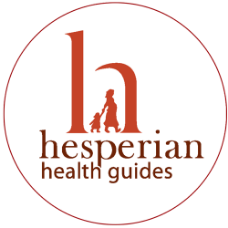
Ayudar a los niños sordos
Spanish translation of Helping Children Who Are DeafSandy Niemann, Devorah Greenstein, Darlena David | 2008
Published by Hesperian Health Guides
$14.95
Este libro innovador está lleno de actividades para ayudar a un niño sordo a comunicarse y a desarrollarse durante los primeros 5 años de la vida, a través de un idioma hablado o un lenguaje de señas. Apoya los esfuerzos de los padres y otros que cuidan a los recién nacidos y niños pequeños. También disponible en inglés y francés.
“When everyone is committed to education, deaf children can have the chance to learn, go to school, and develop their capabilities just like everyone else.”
— Helping Children Who Are DeafPacked with activities on how to foster language learning through visual and oral approaches, this groundbreaking book explains ways to adapt activities and exercises for both a child's specific abilities and a family’s unique circumstances. This book is part of Hesperian’s Early Assistance Series, which contains essential information for children with hearing and vision problems.
Children who are deaf need extra help learning either a spoken or sign language, so they can develop their thinking, learn to communicate, and explore and interact with the world.
Ayudar a los niños sordos supports parents and other caregivers in building the communication skills of babies and young children. The book also explores how deafness affects a child's ability to learn language, as well as develop mentally and socially. Developed in partnership with families of children who are deaf or cannot hear well, community-based disability organizations, deaf adults, teachers, health workers and other experts in more than 17 countries, Ayudar a los niños sordos is practical, accessible and appropriate across varied conditions and cultures.
View Sample Pages Online
Table of Contents (PDF)Chapter 12: Education(PDF)
Praise for Helping Children Who Are Deaf
"This book will make a world of difference for so many deaf children...It is an excellent resource for teaching families, communities, and health workers how to make language accessible to deaf children so that they can learn about, understand, and interact with the world around them."— Amy Wilson, Program Director International Development Certificate, Gallaudet University
"The Hesperian Foundation has done it again. The second book in the Early Assistance Series for Children with Disabilities, Helping Children Who Are Deaf, is fulfilling one's expectations of quality and practical applicability in a publication from the Hesperian Foundation...While the book is primarily written for parents and caregivers, it is just as useful for teachers and community workers who have no prior knowledge about how to interact with and teach children with hearing impairments. The layout and illustrations supporting the carefully worded text help to convey the message of the book and make it easy to use. The book's emphasis on deafness as a community issue is a particular strong theme that is reinforced by many useful suggestions throughout the book. Also, the key issues of communication, interaction and language are dealt with in a convincing, very positive and caring way. The use of hearing aids and even cochlear implants are discussed in a practical way. Considering the oversight of children with hearing impairments especially in the developing countries, this book is meeting a long overdue need, and I for one cannot wait to put it to use."
— Birgit Dyssegaard, Educational and Clinical Psychologist, External Consultant to the Danish International Development Assistance (Danida) in Special Needs and Inclusive Education
"We would recommend this book for use in helping children who cannot hear well because it uses simple language and the examples used are the usual day-to-day activities that are used in everyday life—people can relate to them without any problem."
— Uganda Society for Disabled Children



